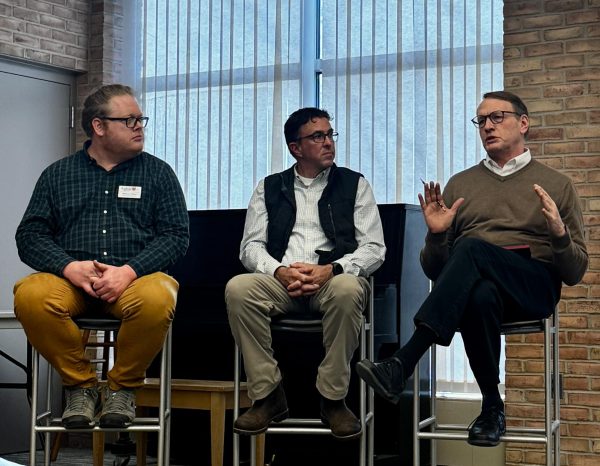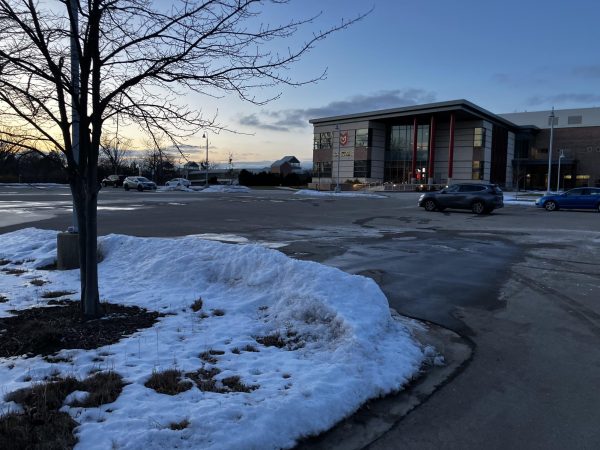University to ‘strongly encourage’ vaccine once available
When Olivia Giovannelli, ‘19 nursing major alum, started seeing Covid-19 patients on her floor at LaGrange Memorial Hospital in LaGrange, Illinois, there was little that her medical team was able to do to help them.
“At the beginning of the pandemic, there really wasn’t very much information about how to treat patients,” Giovanelli noted. “There were shifts where we would have all of our patients die. It’s improved now–we haven’t had a patient die on our floor for about two months–and much of that is because we understand the disease better.”
As the COVID-19 pandemic has continued, the medical establishment has developed more effective treatments for critically ill patients. Yet much of the conversation regarding the disease continues to center around preventing the spread of the virus and developing an effective and accessible vaccine.
According to the Centers for Disease Control, vaccination allows for a community to develop herd immunity to a particular illness.
“When enough people are vaccinated against a certain disease, the germs can’t travel as easily from person to person — and the entire community is less likely to get the disease,” the CDC website states.
In addition, vaccines are particularly important for communities in which individuals have extensive close contact, such as schools and college campuses.
Calvin currently requires that students complete 8 common vaccination regimens. The required vaccinations are reviewed on an annual basis and align with recommendations from local, state and federal health agencies, and thus may change. For example, at the start of the 2020-2021 school year, Calvin began to require on-campus students to get meningitis vaccinations.
Students are able to apply to obtain either medical or religious waivers to the vaccine requirement, although Calvin highly encourages all students to obtain vaccinations.
Dr. Laura Champion, the medical and administrative director of Health Services, noted that “there is a very small number” of on-campus students who are not vaccinated. “We obtain all students’ vaccination information on the vaccines we require when they enroll at Calvin,” Champion said. “Our staff have the names and contact information for the most vulnerable due to being un-vaccinated during an outbreak.”
For example, during a measles outbreak several years ago, twelve students were unvaccinated. These students were contacted immediately when the outbreak occurred, and were required to learn remotely until the outbreak was brought under control and the students were no longer at risk.
Champion noted that Calvin’s response to health outbreaks are overseen by the Kent County health department. “It was the health department who stepped in [to the measles outbreak] and oversaw isolation and quarantine when that outbreak occurred.”
Although many have been hoping for a vaccine to signal the end of the Covid-19 pandemic, Champion noted that she was “cautiously optimistic.”
“Local health departments, other college officials, and the governor’s office predict that mass vaccination may not be available until late spring of 2021,” Champion said, “but early vaccination may be available as soon as February for personnel in public health clinics as well as first responders.”
“If a safe vaccine becomes available,” said Sarah Visser, dean for student life, “Calvin plans work closely with the Kent County Health Department to provide educational material about the vaccine”
Similarly, when a vaccination becomes available, “Calvin will be eager to help administer it,” Visser noted. “We will not require it for our students, but we will strongly encourage it and do everything we can to make the vaccine available to members of the Calvin community.”






